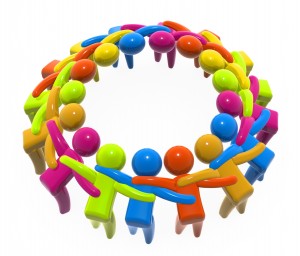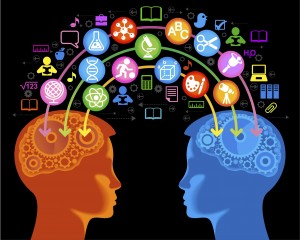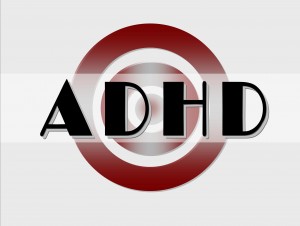Discover the answers to the top 10 questions about ADHD brain training treatment
1. If it works so well, why haven’t I heard of Neurofeedback?
Unfortunately the world doesn’t always operate in the most efficient way, or what is best for most people. Vested interests have profit margins to protect and academic rivalry can be a barrier to progress. Despite the evidence of the power of Neurofeedback going back 40 years, it was only in the last few years that conventional science has accepted that the brain could change – a concept now known as Neuroplasticity. Before this was accepted the idea that Neurofeedback could change the brain was officially ‘impossible’ despite the overwhelming evidence. Not only has science finally caught up with what many have known to be true for decades, the cost of bringing these treatments to you had been very high. Highly complex and large equipment cost millions to own and operate. With advances in digital technology, gaming software and processes refined over many years, Neurofeedback has now become a commercially viable treatment option. Most importantly, the understanding of the best clinical protocols for brain training has improved to the point where several hundred Neurofeedback Practitioners are using this technology in the USA to help clients improve their brain function. Although individual practitioners have been carrying out Neurofeedback in increasing numbers in the USA, Canada, continental Europe and Australia, it is still relatively unheard of in these countries and certainly not mainstream. In the UK, BrainTrainUK aims to raise awareness and enable thousands of people to benefit from this drug-free, natural approach.2. What is the brain training experience like?
The vast majority of people enjoy the Neurofeedback sessions. The brain is stimulated and seems to remain interested even when some repetition is necessary to train your brain to become better at self-regulation. Electrode sensors will be attached to your head to monitor your brain waves. This involves cleaning the scalp with an alcohol swab and attaching the sensors using a special paste, similar in consistency to Vaseline. Feedback to your brain is provided through the use of video, audio and if you choose, touch. You can choose your method of feedback from week to week, but usually people settle on a preferred method. There is a choice of video games that you ‘control’ with your brain, from very simple ‘pong’ type games to car racing and jet ski games. You can also choose from a range of documentaries, TV shows or music videos. The video will go faster, louder or bigger when the brain is working well. As you relax, the brain is able to ‘tune in’ to the feedback and adjust in response. This all happens subconsciously, which means you don’t consciously try to direct the brain one way or another, but just relax and allow the brain to use it’s own ability to self-regulate.3. How effective is brain training, what kind of results can I expect?
Neurofeedback brain training is not only safer than medication the benefits of the treatment also remain after the programme has finished. With medication you are simply controlling the symptoms, not solving the problem. In fact, the treatment has such a proven success rate we offer you a no-risk money back guarantee. If after the brain training programme is completed and there is no benefit to you or you loved one, we will refund your money in full. Please click here to find out more about our money back guarantee for brain training. We take the time to understand your home and work environments and help you ensure they are supportive of the treatment. But like with any form of training, Neurofeedback brain training needs you to be motivated and committed to improving, too.4. Is it safe?
Absolutely. In fact, no one has been harmed since Neurofeedback began in the 1950s. The sensors we attach to your scalp are simply there to listen to the brain; there is no stimulation or signal transmitted by the equipment. The brain does all the real work, adapting in response to the feedback.5. Are there any side effects to the BrainTrainUK programme?
There are no side effects in the conventional sense because the training is non-invasive and does not involve any medication whatsoever. Because everyone is different, your Neurofeedback Practitioner will carefully monitor how your symptoms react to the training. Checking, for example, your sleeping patterns to ensure you are given the ideal treatment. If, for example, you developed a headache during an early training session your Practitioner will adjust the feedback settings to modify the reward frequency, ensuring that future sessions are free from discomfort.6. How soon will I feel a benefit and how many sessions will I need?
Clients often feel different after just the first session, although it will take multiple sessions for the new ways of working to be fully learned by the brain. Just as different people learn at different rates, so do different brains, and some have more to learn than others. The spiral in our logo represents how each session builds upon the previous ones to accumulate the benefits. We ask that you commit to 20 sessions; this will deliver significant, lasting improvements for most clients. If your condition is particularly serious you may wish to continue beyond 20 sessions, but this is something you would discuss with your Neurofeedback Practitioner towards the end of your first course.7. What are your qualifications?
All of our Neurofeedback Practitioner professionals have years of clinical experience, and qualifications in Neurofeedback theory, equipment and practice. While the sophisticated technology involved can automate many aspects of training, every client is different and we believe the most important skill is the ability to take a client-centric approach to training. BrainTrainUK uses the methodology and equipment taught and developed by the EEG Institute, the organisation created by Dr Siegfried and Susan Othmer, two pioneers who have trained thousands of people in Neurofeedback in the last 25 years.8. How much does it cost?
We have created a range of variable programme lengths to suit your schedule:- Fast Track – 2 sessions per day, 5 days per week to complete 20 sessions in 2 weeks.
- Premium – 5 sessions per week to complete the 20 sessions in 1 month
- Standard – 2 sessions per week to complete the 20 sessions in 10 weeks
9. Where can I do it ?
We will need information to complete this one. Please provide and I will write, or you can just add in clinic locations / directions.10. Is it possible to complete the brain training programme from home?
Unfortunately, no it is not possible. High quality Neurofeedback treatment takes many years to learn and master and so self-administered treatment would likely have a negative affect on results. And that’s not to mention that the equipment used is technical and expensive and so would not make home treatment viable. When safe and effective home treatment becomes available, we’ll be the first to let you know. Have we answered your question? If not, please get in touch with us here at BrainTrainUK. You’ll be able to speak to one of our friendly experts who will be happy to help you, simply call today on 0800 800 800.The brain training process: we start by assessing your needs
Before we can design a custom training programme aimed to maximise success, we need to make an initial assessment of some elements of your brain function. At the start of a training programme, your Neurofeedback Practitioner will test this brain function using our QIK-TEST tool. It’s nothing to be worried about. Remember, your entire treatment is non-invasive and requires no medication. This test simply measures brain response times in a variety of circumstances and involves pushing buttons on a small box in response to lights for 20 minutes in total. This test also provides a baseline to compare with the results at the end of your training programme. If you have any concerns about the procedure, or the QIK-TEST, please send us an email or call on 0800 800 800 today. We’re always happy to help.Experience each session in the caring hands of expert clinicians
Each session will begin in the same way with your Practitioner asking you about how you are feeling and if you have any feedback from the session before. She will be particularly interested in your sleep patterns as these indicate how well the training protocol suits your individual needs. We need to measure your brainwaves so will attach electrode sensors to your head. This involves cleaning the scalp with an alcohol swab and attaching the sensors with a special paste, similar in consistency to Vaseline. As the session progresses the sensor positions may be moved to record activity in different parts of your brain. Feedback to your brain is provided through the use of video, audio and if you choose, touch. You can choose your method of feedback from week to week, but usually people settle on a preferred method. There is a choice of video games that you ‘control’ with your brain, from very simple ‘pong’ type games to car racing and jet ski games. You can also choose from a range of documentaries, TV shows or music videos. The video will go faster, louder or bigger when the brain is working well. As you relax, the brain is able to ‘tune in’ to the feedback and adjust in response. This all happens subconsciously, which means you don’t consciously try to direct the brain one way or another, but just relax and allow the brain to use it’s own ability to self-regulate.Neurofeedback is a safe and effective brain training technique
Having electrodes attached to your scalp can be a concern for some people. We can assure you there is nothing to worry about. There is no pain and no risk whatsoever. The equipment is only there to pick up and record the normal activity of your brain. Obtaining information directly from the brain and providing feedback straight back via the senses, in real time, is what makes Neurofeedback unique and so successful. Throughout your session, your Practitioner will check how you are feeling and will adjust the training plan as necessary. At the end of the session the sensors will be removed, your Practitioner will make notes, and you will be free to get on with your normal day. To book your initial assessment, or to ask any questions about the procedure, please call BrainTrainUK today on 0800 800 800.Experienced brain training practitioners focused on helping you
With years of clinical experience, our practitioners are experts at working with children and adults with special needs. They have all been trained to the very highest standards in Neurofeedback theory, equipment and practice. BrainTrainUK uses the approach created by EEG Info, the company founded by Dr Siegfried Othmer and Susan Othmer, based in Woodland Hills, California. All of our Practitioners have attended residential training courses personally taught by the Othmers and their clinical staff.The BrainTrainUK standards of clinical care
Although Neurofeedback is too new in the UK to be a regulated healthcare profession, and Neurofeedback is too new to be a regulated service, we have set standards to which we hold ourselves – our staff and practitioners – accountable. These Standards are broadly based on the principals of the standards adopted by the Care Quality Commission (CQC) for care services and the Health and Care Professions Councils (HCPC) for health professionals. Although not all parts of the CQC and HCPC standards are relevant, we have adopted standards for the following areas: For our services: • Respecting and involving people who use services
• Consent to care and treatment
• Care and welfare of people who use services
• Cooperating with other providers
• Safeguarding people who use services from abuse
• Cleanliness and infection control
• Safety and suitability of premises
• Safety, availability and suitability of equipment
• Requirements relating to workers
• Staffing
• Supporting workers
• Assessing and monitoring the quality of service provision
• Complaints
• Records
• Fees
• Financial position
For our Neurofeedback Professionals:
• Character
• Health
• Standards of conduct, performance and ethics
• Standards of proficiency
• Standards of education and training
• Standards of continuing professional development
These standards mean you can be confident that our Neurofeedback Practitioners can be trusted to provide safe, confidential and competent care to you and your loved ones.
Our Character Standard builds upon the HCPC standards by also requiring that all our Neurofeedback Professionals are subject to an Enhanced Disclosure & Barring Service (DBS) check (the new name for CRB checks) prior to employment.
If you have any questions about the experience or clinical standards of our staff and practitioners, please pick up the phone. Our service is 100% open and transparent and we’d be happy to speak with you. Please call BrainTrainUK on 0800 800 800.
• Respecting and involving people who use services
• Consent to care and treatment
• Care and welfare of people who use services
• Cooperating with other providers
• Safeguarding people who use services from abuse
• Cleanliness and infection control
• Safety and suitability of premises
• Safety, availability and suitability of equipment
• Requirements relating to workers
• Staffing
• Supporting workers
• Assessing and monitoring the quality of service provision
• Complaints
• Records
• Fees
• Financial position
For our Neurofeedback Professionals:
• Character
• Health
• Standards of conduct, performance and ethics
• Standards of proficiency
• Standards of education and training
• Standards of continuing professional development
These standards mean you can be confident that our Neurofeedback Practitioners can be trusted to provide safe, confidential and competent care to you and your loved ones.
Our Character Standard builds upon the HCPC standards by also requiring that all our Neurofeedback Professionals are subject to an Enhanced Disclosure & Barring Service (DBS) check (the new name for CRB checks) prior to employment.
If you have any questions about the experience or clinical standards of our staff and practitioners, please pick up the phone. Our service is 100% open and transparent and we’d be happy to speak with you. Please call BrainTrainUK on 0800 800 800.Our recent works
Case Studies
View some of the most successful projects and more by our specialists presented in this gallery. We work to make your business start effectively working for you.
[ess_grid alias=”Home 1″]
The brain training process: we start by assessing your needs
Before we can design a custom training programme aimed to maximise success, we need to make an initial assessment of some elements of your brain function. At the start of a training programme, your Neurofeedback Practitioner will test this brain function using our QIK-TEST tool. It’s nothing to be worried about. Remember, your entire treatment is non-invasive and requires no medication. This test simply measures brain response times in a variety of circumstances and involves pushing buttons on a small box in response to lights for 20 minutes in total.
This test also provides a baseline to compare with the results at the end of your training programme.
If you have any concerns about the procedure, or the QIK-TEST, please send us an email or call on 0800 800 800 today. We’re always happy to help.
At the start of a training programme, your Neurofeedback Practitioner will test this brain function using our QIK-TEST tool. It’s nothing to be worried about. Remember, your entire treatment is non-invasive and requires no medication. This test simply measures brain response times in a variety of circumstances and involves pushing buttons on a small box in response to lights for 20 minutes in total.
This test also provides a baseline to compare with the results at the end of your training programme.
If you have any concerns about the procedure, or the QIK-TEST, please send us an email or call on 0800 800 800 today. We’re always happy to help.
Experience each session in the caring hands of expert clinicians
Each session will begin in the same way with your Practitioner asking you about how you are feeling and if you have any feedback from the session before. She will be particularly interested in your sleep patterns as these indicate how well the training protocol suits your individual needs. We need to measure your brainwaves so will attach electrode sensors to your head. This involves cleaning the scalp with an alcohol swab and attaching the sensors with a special paste, similar in consistency to Vaseline. As the session progresses the sensor positions may be moved to record activity in different parts of your brain. Feedback to your brain is provided through the use of video, audio and if you choose, touch. You can choose your method of feedback from week to week, but usually people settle on a preferred method. There is a choice of video games that you ‘control’ with your brain, from very simple ‘pong’ type games to car racing and jet ski games. You can also choose from a range of documentaries, TV shows or music videos. The video will go faster, louder or bigger when the brain is working well. As you relax, the brain is able to ‘tune in’ to the feedback and adjust in response.
This all happens subconsciously, which means you don’t consciously try to direct the brain one way or another, but just relax and allow the brain to use it’s own ability to self-regulate.
Feedback to your brain is provided through the use of video, audio and if you choose, touch. You can choose your method of feedback from week to week, but usually people settle on a preferred method. There is a choice of video games that you ‘control’ with your brain, from very simple ‘pong’ type games to car racing and jet ski games. You can also choose from a range of documentaries, TV shows or music videos. The video will go faster, louder or bigger when the brain is working well. As you relax, the brain is able to ‘tune in’ to the feedback and adjust in response.
This all happens subconsciously, which means you don’t consciously try to direct the brain one way or another, but just relax and allow the brain to use it’s own ability to self-regulate.
Neurofeedback is a safe and effective brain training technique
Having electrodes attached to your scalp can be a concern for some people. We can assure you there is nothing to worry about. There is no pain and no risk whatsoever. The equipment is only there to pick up and record the normal activity of your brain. Obtaining information directly from the brain and providing feedback straight back via the senses, in real time, is what makes Neurofeedback unique and so successful. Throughout your session, your Practitioner will check how you are feeling and will adjust the training plan as necessary. At the end of the session the sensors will be removed, your Practitioner will make notes, and you will be free to get on with your normal day. To book your initial assessment, or to ask any questions about the procedure, please call BrainTrainUK today on 0800 800 800.0
Happy clients
0
Awwards Win
0
Projects complete
0
Offices on the world
Should you be worried about Ritalin side effects?
Each person suffering from ADHD and each family is different. For some people medication is the preferred option. For many other families the concern over serious side effects means they choose a different path. On this page we have detailed the common and less common side effects for a range of drugs used to treat ADHD and similar conditions. These drugs can have a powerful affect on you or your loved one and so understanding the risks involved is important.What are the side effects of Ritalin and other drug treatments for ADHD?
 There are many concerns about side effects among medical experts and parents alike. And while Ritalin is the most well known, it is not the only drug prescribed by the NHS – and certainly not the only drug with worrying side effects.
Dexamfetamine (Brand Name: Dexadrine, Adderall)
Dexamfetamine is part of the amphetamine molecule. The band Dexy’s Midnight Runners was named after Dexadrine, a popular recreational drug at the time known as ‘Dexy’.
The full list of side effects of dexamfetamine are included on the manufacturers’ patient information sheets, but are summarised below for your convenience.
Or, to book an initial consultation, please call us today on 0330 111 3299
There are many concerns about side effects among medical experts and parents alike. And while Ritalin is the most well known, it is not the only drug prescribed by the NHS – and certainly not the only drug with worrying side effects.
Dexamfetamine (Brand Name: Dexadrine, Adderall)
Dexamfetamine is part of the amphetamine molecule. The band Dexy’s Midnight Runners was named after Dexadrine, a popular recreational drug at the time known as ‘Dexy’.
The full list of side effects of dexamfetamine are included on the manufacturers’ patient information sheets, but are summarised below for your convenience.
Or, to book an initial consultation, please call us today on 0330 111 3299
| Less common serious side effects |
|
|---|---|
| Headache | Slowing of growth (height and weight) in children |
| Stomach ache | Seizures, mainly in patients with a history of seizures |
| Trouble sleeping | Eyesight changes or blurred vision |
| Weight loss | Sudden death in patients who have heart problems or heart defects |
| Dry mouth | Stroke and heart attack in adults |
| Fast heart beat | Increased blood pressure and heart rate |
| Decreased appetite | Aggressive or hostile behaviour |
| Nervousness | Believing things that are not true |
| Mood swings | Unusually suspicious feeling of others |
| Dizziness | Hallucinations (hearing voices or seeing things that do not exist) |
Atomoxetine (Brand Name: Strattera)
Atomoxetine has been linked with suicidal thoughts and suicide attempts. Because of safety concerns, Stratera was placed on the Medicines and Healthcare Products Regulatory Agency’s (MHRA) ‘Black Triangle List’ for intensive monitoring in 2004. It was removed from this list after 8 years in September 2012.
The full list of side effects of atomoxetine are included on the manufacturer’s patient information sheet, but are summarised below for your convenience.
| Common side effects | Less common serious side effects |
|---|---|
| Upset stomach | Suicidal thoughts and actions |
| Decreased appetite | Liver damage |
| Nausea or vomiting | Sudden death in patients who have heart problems or heart defects |
| Dizziness | Stroke and heart attack in adults |
| Tiredness | Increased blood pressure and heart rate |
| Mood swings | Psychotic symptoms (such as hearing voices, believing things that are not true, being suspicious) or new manic symptoms |
| Serious allergic reactions | |
| Slowing of growth in children | |
| Problems passing urine |
If the NHS prescribes a drug, surely it is safe for my child?
 It depends how you define safe. Different drugs affect different people in different ways. Just as one person can eat peanuts without risk, they can prove fatal to another. Many medical treatments have unwanted side effects and sometimes these side effects are not discovered, identified or acted upon for many years. It is really down to your medical professionals and yourself to judge the risk and the potential benefit. Cancer treatments, for example, can make you sick and cause your hair to fall out, but they can cure cancer so the potential benefits often outweigh the costs.
Fortunately, for ADHD and similar conditions there is a better option for you. Neurofeedback brain training offers you a safe and effective alternative from drugs, such as Ritalin. There is no surgery, no medication and no side effects whatsoever. It works using positive reinforcement in the form of sensory feedback that trains the brain to correct any irregular behaviour it may have been exhibiting in the past.
To learn more about avoiding the risks and uncertainty of medications for ADHD, such as Ritalin, please contact BrainTrainUK on 0330 111 3299 today.
It depends how you define safe. Different drugs affect different people in different ways. Just as one person can eat peanuts without risk, they can prove fatal to another. Many medical treatments have unwanted side effects and sometimes these side effects are not discovered, identified or acted upon for many years. It is really down to your medical professionals and yourself to judge the risk and the potential benefit. Cancer treatments, for example, can make you sick and cause your hair to fall out, but they can cure cancer so the potential benefits often outweigh the costs.
Fortunately, for ADHD and similar conditions there is a better option for you. Neurofeedback brain training offers you a safe and effective alternative from drugs, such as Ritalin. There is no surgery, no medication and no side effects whatsoever. It works using positive reinforcement in the form of sensory feedback that trains the brain to correct any irregular behaviour it may have been exhibiting in the past.
To learn more about avoiding the risks and uncertainty of medications for ADHD, such as Ritalin, please contact BrainTrainUK on 0330 111 3299 today.
To read more about this, please read the next page on The Brain Train UK Program.
Blog posts
Our Last News
<h1>Treatments for ADHD – Attention Deficit and Deficit Hyperactivity Disorder</h1>
Unfortunately for families struggling to cope with the affects of ADHD on their lives, the NHS is severely limited as to what it can do to help. In fact, for children under 6 years of age all the NHS can offer is ‘parental training’. While support of this nature can be useful, many parents desire an actual solution for their child, not merely a coping mechanism.
And even when your child reaches six years old and the prospect of medicating your loved one becomes an option, it can often be a very difficult decision to make.
<h2>What drugs are available for the treatment of ADHD?</h2> In the UK, three drugs are licensed for the management of ADHD in children aged six and over:
In the UK, three drugs are licensed for the management of ADHD in children aged six and over:
 <h2>Do medications for ADHD have serious side effects?</h2>
The simple answer is: yes, they can. There is no doubt these drugs can be effective in controlling behaviour. But they all have side effects and will change your child’s personality.
Ranging from relatively mild side effects such as headaches and trouble sleeping, all the way to hallucinations and sudden death in susceptible patients. How your child will be affected by medication will not be known until you begin treatment. It’s a level of uncertainty that many parents are just unwilling to take a chance with. Read more about the side effects and concerns about ADHD medication here.
Neurofeedback offers a better solution – an alternative to drugs like Ritalin and without the side effects. Neurofeedback is a natural way to provide the tools to ‘fine tune’ your child’s brain for optimum performance in all situations, using the brain’s own ability to self-regulate and create permanent learning. Read more about Neurofeedback here.
For more information about this effective and safe treatment to improve the brain ability of your child, please call BrainTrainUK today on 0800 800 800.
<h2>Do medications for ADHD have serious side effects?</h2>
The simple answer is: yes, they can. There is no doubt these drugs can be effective in controlling behaviour. But they all have side effects and will change your child’s personality.
Ranging from relatively mild side effects such as headaches and trouble sleeping, all the way to hallucinations and sudden death in susceptible patients. How your child will be affected by medication will not be known until you begin treatment. It’s a level of uncertainty that many parents are just unwilling to take a chance with. Read more about the side effects and concerns about ADHD medication here.
Neurofeedback offers a better solution – an alternative to drugs like Ritalin and without the side effects. Neurofeedback is a natural way to provide the tools to ‘fine tune’ your child’s brain for optimum performance in all situations, using the brain’s own ability to self-regulate and create permanent learning. Read more about Neurofeedback here.
For more information about this effective and safe treatment to improve the brain ability of your child, please call BrainTrainUK today on 0800 800 800.
 In the UK, three drugs are licensed for the management of ADHD in children aged six and over:
In the UK, three drugs are licensed for the management of ADHD in children aged six and over:
- Methylphenidate (Ritalin, Concerta, Medikinet XL, Equasym XL)
- Dexamfetamine (Adderall, Dexadrine)
- Atomoxetine (Strattera)
 <h2>Do medications for ADHD have serious side effects?</h2>
The simple answer is: yes, they can. There is no doubt these drugs can be effective in controlling behaviour. But they all have side effects and will change your child’s personality.
Ranging from relatively mild side effects such as headaches and trouble sleeping, all the way to hallucinations and sudden death in susceptible patients. How your child will be affected by medication will not be known until you begin treatment. It’s a level of uncertainty that many parents are just unwilling to take a chance with. Read more about the side effects and concerns about ADHD medication here.
Neurofeedback offers a better solution – an alternative to drugs like Ritalin and without the side effects. Neurofeedback is a natural way to provide the tools to ‘fine tune’ your child’s brain for optimum performance in all situations, using the brain’s own ability to self-regulate and create permanent learning. Read more about Neurofeedback here.
For more information about this effective and safe treatment to improve the brain ability of your child, please call BrainTrainUK today on 0800 800 800.
<h2>Do medications for ADHD have serious side effects?</h2>
The simple answer is: yes, they can. There is no doubt these drugs can be effective in controlling behaviour. But they all have side effects and will change your child’s personality.
Ranging from relatively mild side effects such as headaches and trouble sleeping, all the way to hallucinations and sudden death in susceptible patients. How your child will be affected by medication will not be known until you begin treatment. It’s a level of uncertainty that many parents are just unwilling to take a chance with. Read more about the side effects and concerns about ADHD medication here.
Neurofeedback offers a better solution – an alternative to drugs like Ritalin and without the side effects. Neurofeedback is a natural way to provide the tools to ‘fine tune’ your child’s brain for optimum performance in all situations, using the brain’s own ability to self-regulate and create permanent learning. Read more about Neurofeedback here.
For more information about this effective and safe treatment to improve the brain ability of your child, please call BrainTrainUK today on 0800 800 800.